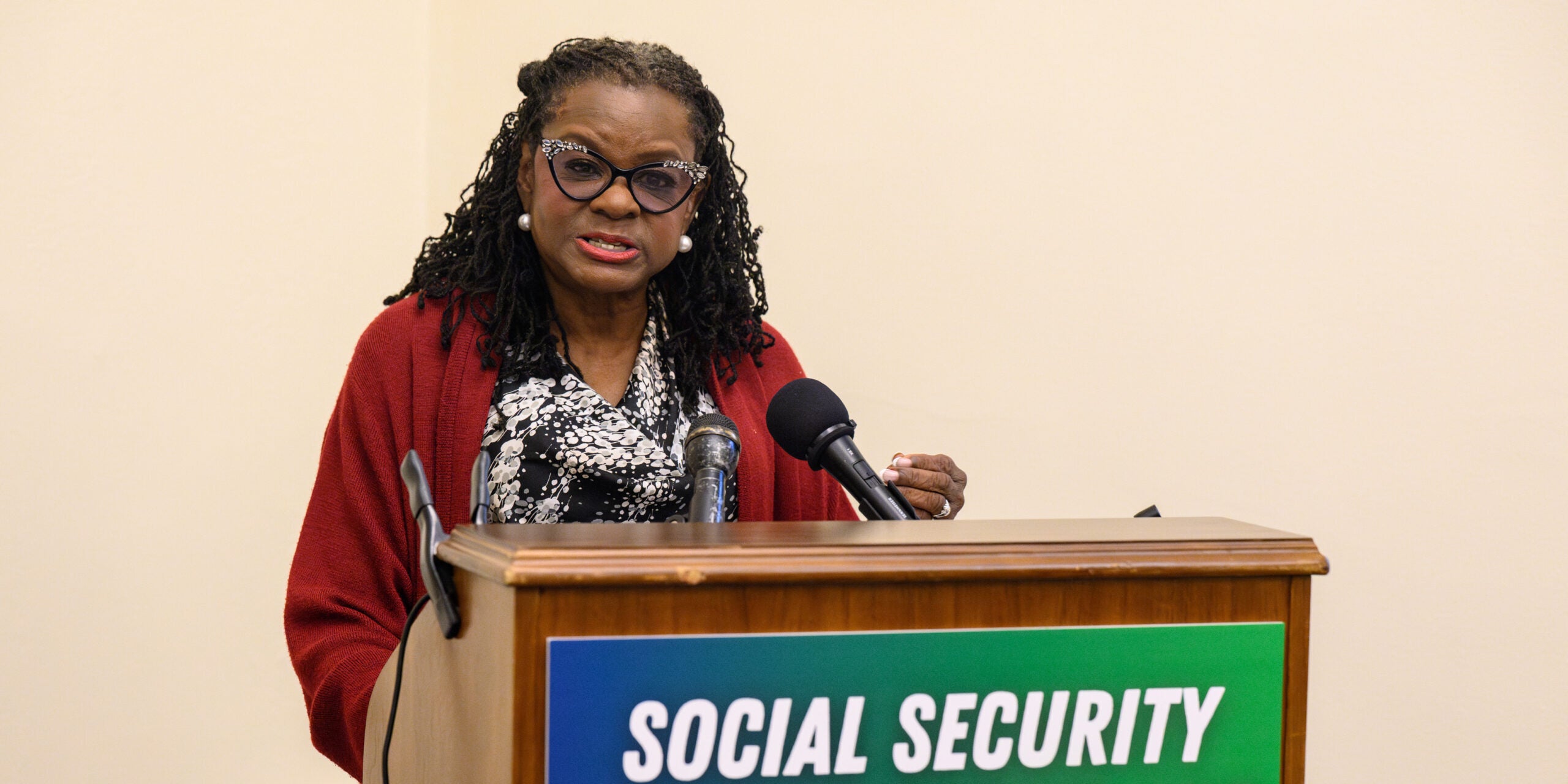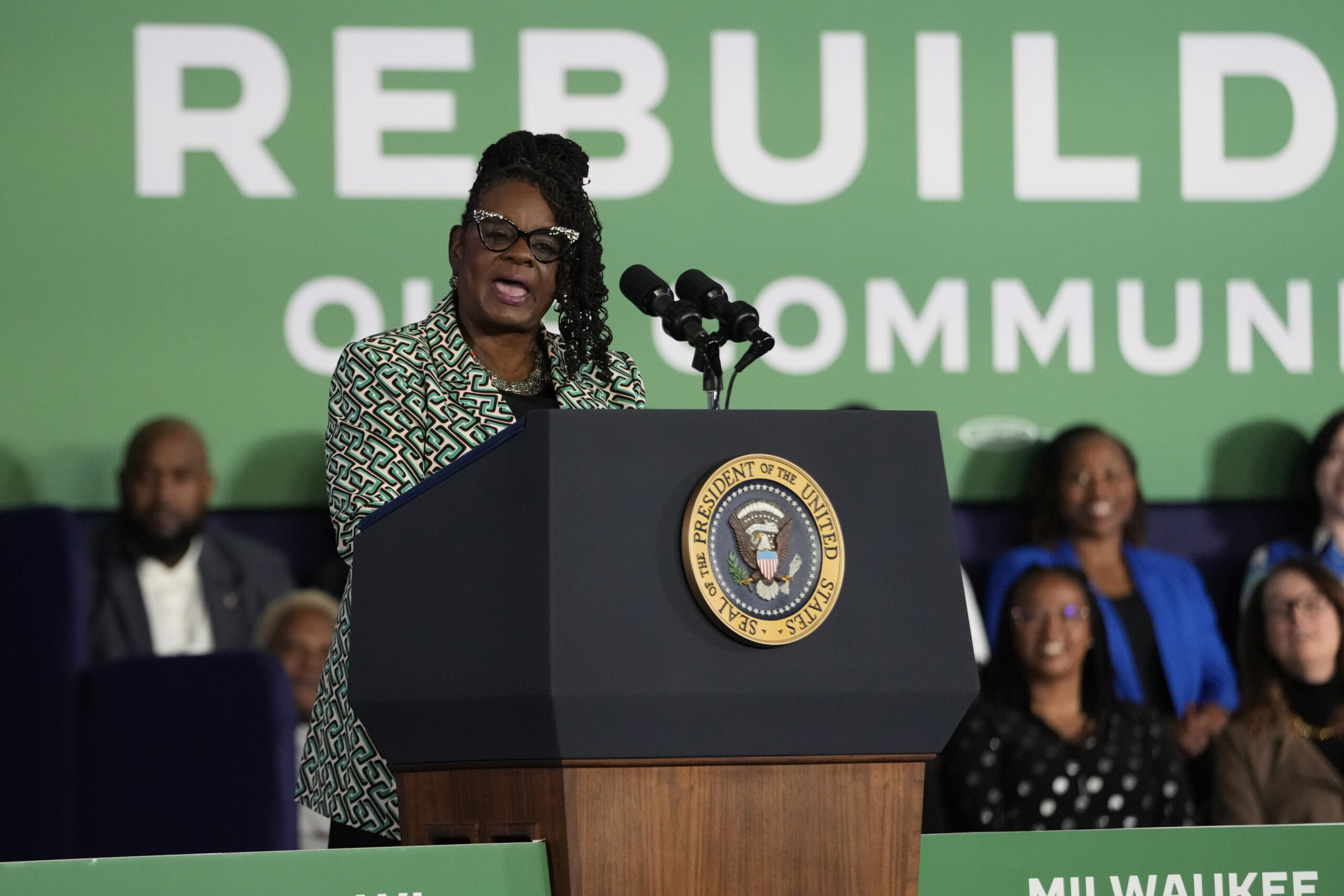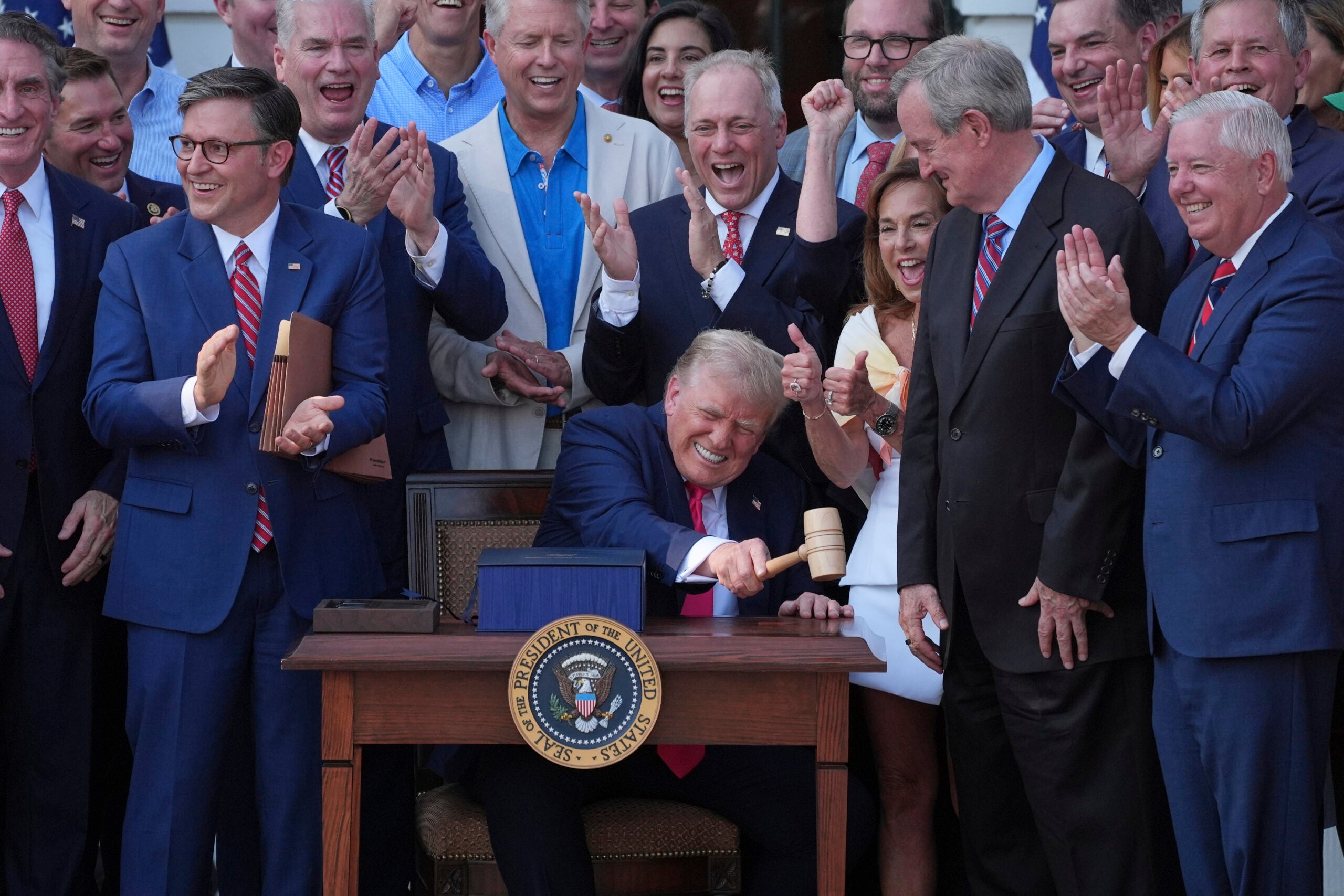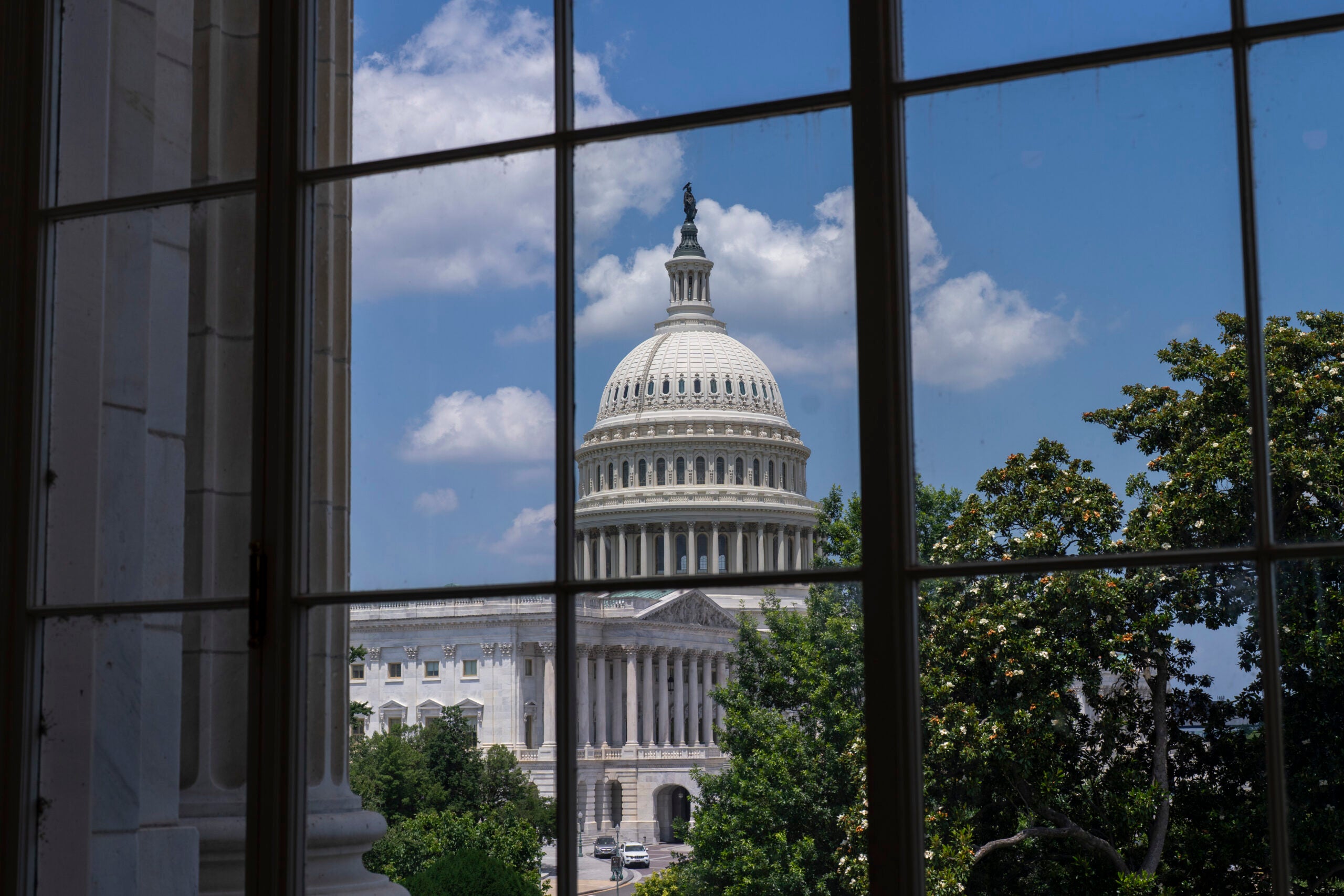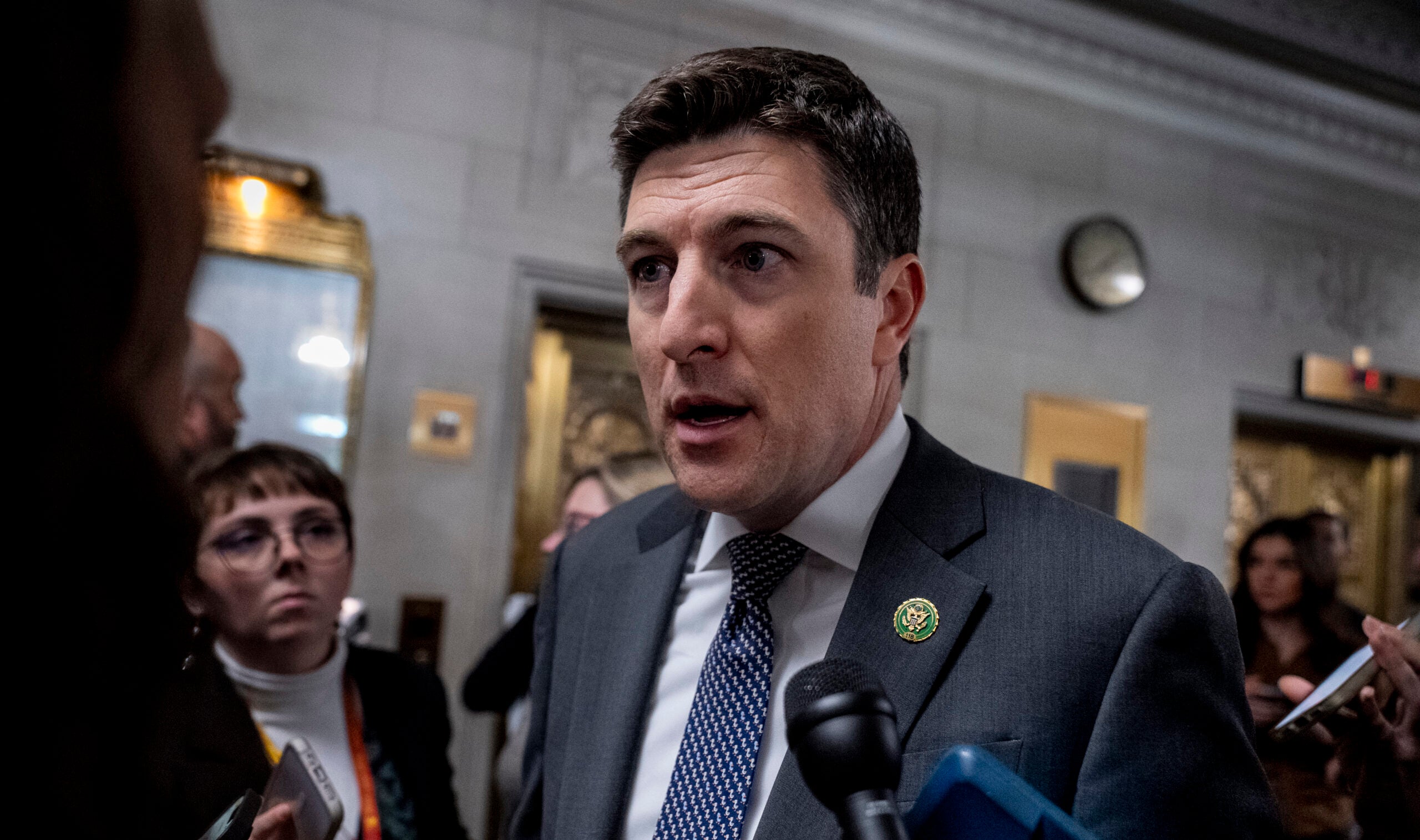Rep. Gwen Moore, a Democrat representing Milwaukee County, says the far-reaching spending and tax cut bill the U.S. House passed last week is a ploy to benefit the richest Americans.
“It’s all a game to come up with this money for permanent tax cuts for the wealthiest people,” Moore said. She recently spoke with WPR’s “Wisconsin Today” about her thoughts on the bill.
The bill is massive, covering child tax credits, student loans, immigration and more. It also contains a provision that would shield President Donald Trump from the legal consequences of ignoring court orders.
News with a little more humanity
WPR’s “Wisconsin Today” newsletter keeps you connected to the state you love without feeling overwhelmed. No paywall. No agenda. No corporate filter.
It now awaits a vote in the Senate. Some Republicans, including Wisconsin Sen. Ron Johnson, say the bill needs to be overhauled because of how much it adds to the national debt and budget deficit. Others in his party are concerned about cuts to Medicaid. Any changes to the bill would send it back for approval in the House.
Moore spoke with “Wisconsin Today” about the legislation and how it could affect Wisconsinites.
The following has been edited for brevity and clarity.
Kate Archer Kent: Let’s get some of your topline takeaways from the “big, beautiful bill.”
Gwen Moore: The “big, beautiful bill” starts out with a premise that we have to find [$4.5 trillion] to extend Trump’s 2017 tax cuts, and just work backwards from that.
So we’ll cut $300 billion out of SNAP. We’ll cut $700 billion dollars out of Medicaid and come up with over $1 trillion worth of cuts. That’s not enough money to give the big, beautiful billionaires their bonanza. So we’ll just raise the debt limit by another $4 billion and put the rest on the credit card.
The topline is that if you’re making $50,000 a year, say, your refund is going to be $265. While portions of this bill, like the 199 A pass-through — meant for small businesses — really get people as much as $115 million in tax breaks.
KAK: Are there any parts of this bill that you agree with?
GM: No. They boosted the child tax credit, which was wonderful, but they left out 17 million of the poorest kids. [Because] if their parents don’t have any income or [if they have] very little income — at least $2,500 worth of work — they can’t get one dime of that tax credit. A couple making up to $400,000 a year can get the benefit of a child tax credit, but the poorest kids don’t get the benefit, or not the full benefit of it.
KAK: There is an added senior tax deduction in this bill. What do you think of that?
GM: Temporary. It’s temporary. It’s all a game to come up with this money for permanent tax cuts for the wealthiest people. The Social Services Block Grant fund — that’s the fund that gives people Meals on Wheels — that really serves a lot of seniors.
This is the kind of stuff that’s going to be cut out. We’re going to cut so much Medicaid that people may not be able to get services in their homes and be forced into nursing homes, because the state will have to elect what Medicaid services to cut. Is that worth it?
KAK: There is major disagreement on this bill about the deficit. Sen. Ron Johnson said the bill was “mortgaging our children’s future.” He’s calling for roughly $6 trillion in spending cuts. Is there a way to support people in safety net programs but not add to the national debt?
GM: Yeah — you cannot give these big tax cuts to the wealthiest people. These tax cuts cost. When you consider the 2017 [tax cuts], and what we’re doing now, they’ve added $10 trillion to the [national] debt.
Given the inflation and the tariffs… cutting more SNAP, making more requirements, undermining the ACA — that’s really what they’re doing — as well as cutting Medicaid so that premiums will balloon up to four or $500 a month more. If you increase people’s expenses and then cut the safety net, when people say we’re moving into a recession or into a stagflation, this is the kind of stuff we’re talking about.
There are other parts of this bill that are ugly, like the provisions that provide Donald Trump and his administration with immunity from judicial review.
KAK: There are sources saying that GOP senators are vowing to rewrite this bill. Should they? How do you see this playing out in the Senate?
GM: I did have an opportunity to chat with Sen. Johnson about the bill, and he shared with me that there was a lot of consternation, but they’re split. There are Republicans that don’t want to see the deep Medicaid cuts, then there are other Republicans who are concerned about the debt, so it’ll be really interesting to see how they rewrite it.
Of course, there are people in the House that think we need deeper cuts. And there are a whole lot of people in the House that voted for the bill, and they’re praying that it doesn’t pass because they don’t want the deep Medicaid cuts. Because they have heard from their constituents that they want [lawmakers’] hands off it.

